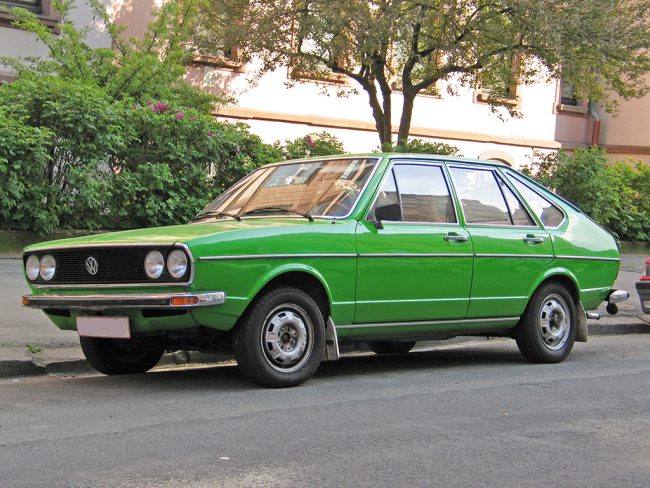
Volkswagen Passat engines
Content
- Brief description of Volkswagen Passat
- Modern Volkswagen Passat
- Overview of engines on various generations of cars
- Volkswagen Passat powertrains
- Popular motors
- Which engine is better to choose Volkswagen Passat
- Choice of oil
- Reliability of engines and their weaknesses
- Maintainability of power units
- Tuning engines Volkswagen Passat
- Swap engines
- Purchase of a contract engine
Volkswagen Passat is a mid-size car belonging to class D. The car has become widespread throughout the world. Under its hood, you can find a wide range of powertrains. All used motors are advanced for their time. The car boasts high reliability and excellent driving comfort.
Brief description of Volkswagen Passat
The Volkswagen Passat was first introduced in 1973. Initially, he did not have his own name and went under the index 511. The car was identical to the Audi 80. The car replaced the Volkswagen Type 3 and Type 4 models. The car was offered in five bodies:
- two-door sedan;
- four-door sedan;
- three-door hatchback;
- five-door hatchback;
- five-door station wagon.

The second generation Volkswagen Passat appeared in 1980. Unlike the previous model, the car received large square headlights. For the American market Passat went on sale under other names: Quantum, Corsar, Santana. The station wagon was named Variant.
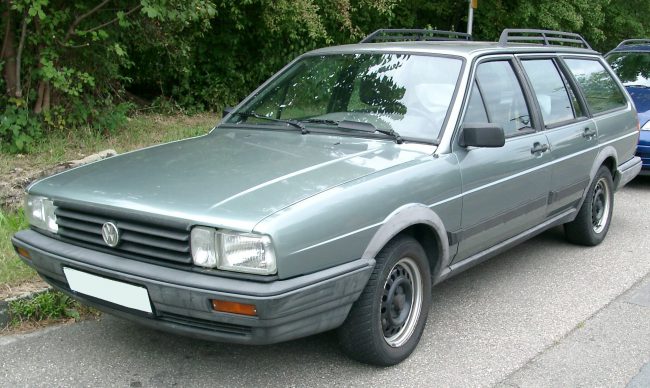
In February 1988, the third generation of the Volkswagen Passat went on sale. The car did not have a grille. A distinctive feature was the presence of block headlights. The car is built on a joint platform of Volkswagen Golf, not Audi. In 1989, an all-wheel drive modification called Syncro went on sale.
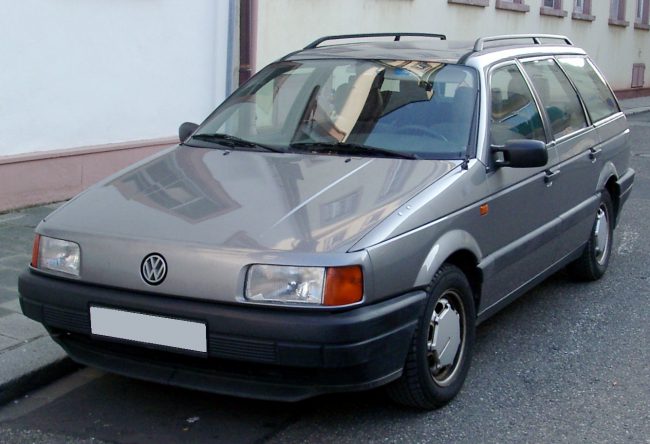
The fourth generation appeared in 1993. The radiator grille reappeared on the car. The update affected the range of powertrains. Body panels and interior design have changed slightly. Most of the cars sold were station wagons.
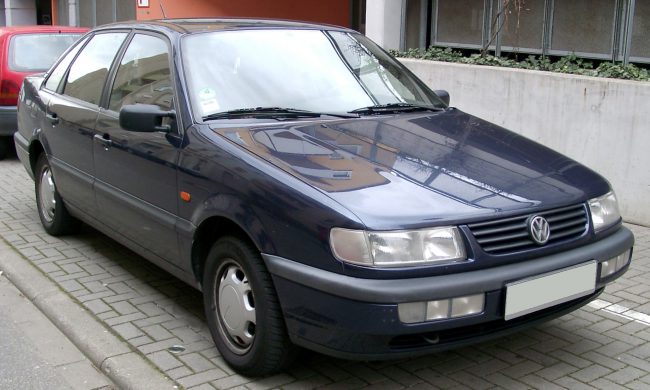
Modern Volkswagen Passat
The fifth generation of the Volkswagen Passat was introduced to the public in 1996. Many elements of the car have again become unified with Audi cars. This made it possible to adopt powerful power units. In mid-2001, the fifth generation Passat was restyled, but the changes were mostly cosmetic.
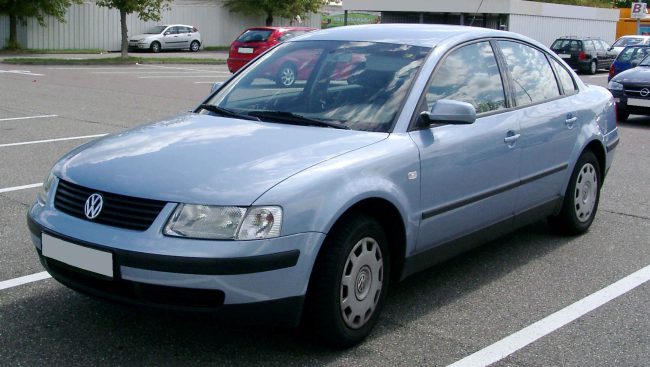
In March 2005, the sixth generation of the Volkswagen Passat was presented at the Geneva Motor Show. For cars, the platform was again chosen from Golf instead of Audi. The machine has a transverse motor arrangement, and not a longitudinal one like the fifth generation. There is also an all-wheel drive version of the Passat, in which up to 50% of the torque can be transferred to the rear wheels when the front axle slips.
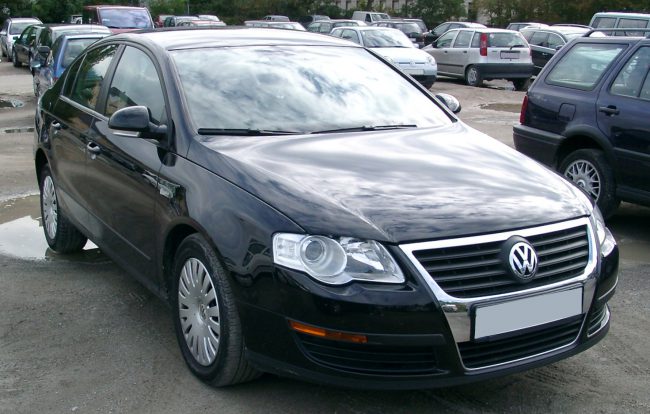
On October 2, 2010, the seventh generation of the Volkswagen Passat was presented at the Paris Motor Show. The car went on sale in sedan and station wagon bodies. There are no significant differences from the previous model of the car. The seventh generation Passat received a number of new features, the main of which are:
- adaptive suspension control;
- urban emergency braking;
- glare-free indicators;
- driver fatigue detection system;
- adaptive headlights.
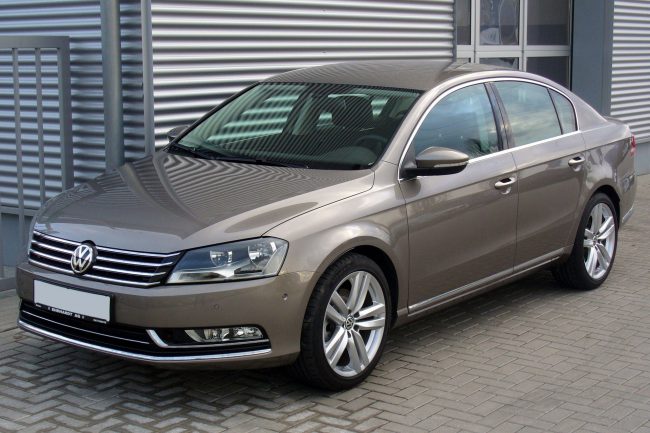
In 2014, the eighth generation of the Volkswagen Passat debuted at the Paris Motor Show. The VW MQB Modularer Querbaukasten modular matrix transverse platform was used as the basis. The car received a new instrument panel Active Info Display, which is characterized by the presence of a large interactive screen. The eighth generation boasts a retractable head-up projection display. It displays up-to-date speed information and prompts from the navigation system.
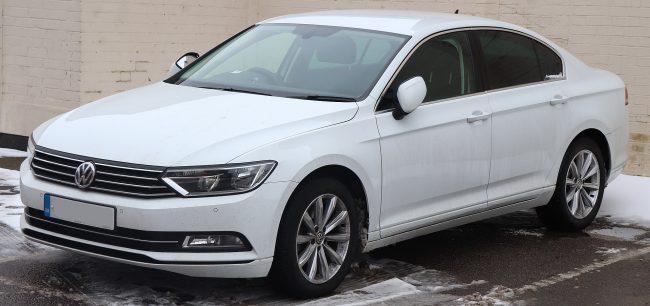
Overview of engines on various generations of cars
Volkswagen Passat has become one of the best selling cars in the world. This was achieved, among other things, through the use of a wide range of power plants. Under the hood you can find both gasoline and diesel engines. You can get acquainted with the engines used on the Passat using the table below.
Volkswagen Passat powertrains
| Car model | Installed motors |
|---|---|
| Volkswagen Passat 1973 | YV WA WB WC |
| Volkswagen Passat 1981 | RF EZ EP SA WV YP NE JN PV WN JK CY WE |
| Volkswagen Passat 1988 | RA 1F AAM RP PF PB KR PG 1Y AAZ VAG 2E VAG 2E 9A AAA |
| Volkswagen Passat 1993 | AEK AAM ABS AAZ 1Z AFN VAG 2E ABF ABF AAA ABV |
| Volkswagen Passat 1997 | ADP AHL ANA ARM ADR APT ARG ANQ General Conditions of Purchase THE BODY AFN A.J.M AGZ AFB AKN ACK ALG |
| Volkswagen Passat restyling 2000 | ALZ A.W.T. AWL BGC AVB AWX AVF BGW BHW AZM BFF OTHER BDG BDH CONSTRUCTION AMX ATQ Bdn BDP |
| Volkswagen Passat 2005 | CAXA to CD BSE BSF CCSA BLF BLP CAYC BZB SADC CBDC BKP WJEC CBBB BLR BVX BVY CAB AXZ BWS |
| Volkswagen Passat 2010 | CAXA CTHD CKMA to CD CAYC CBAB CBAB CLLA CFGB CFGC CCZB BWS |
| Volkswagen Passat 2014 | HONOR PURE CZEA DICK CUKB cukc DADA DCXA CJSA CRLB AUCA DDAA CHHB CJX |
| Volkswagen Passat restyling 2019 | DADA CJSA |
Popular motors
In the early generations of the Volkswagen Passat, the VAG 2E power unit gained popularity. Its integrated management system was the most modern for its time. The resource of the internal combustion engine exceeds 500 thousand km. The cast-iron cylinder block provides a large margin of safety, so the engine can be forced.
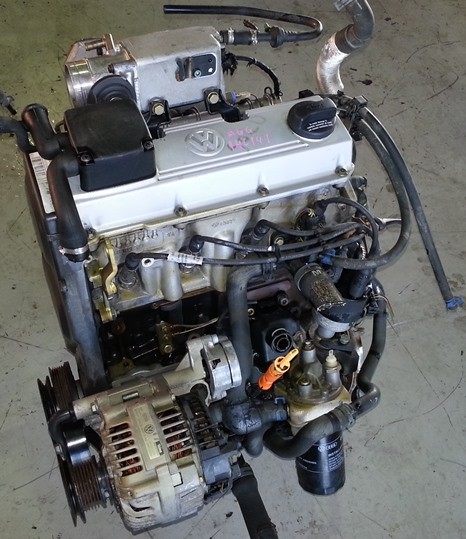
Another popular engine was the CAXA engine. It was installed not only on the Volkswagen Passat, but also on other cars of the brand. The internal combustion engine boasts the presence of direct injection and turbocharging. The power plant is sensitive to the quality of the fuel.
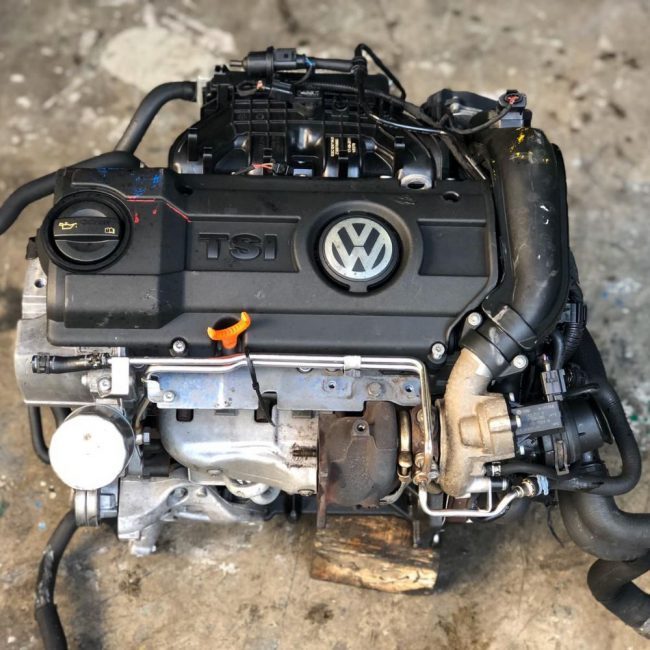
Diesel engines are also popular on the Volkswagen Passat. A prime example of a common internal combustion engine is the BKP engine. The motor is equipped with piezoelectric pump nozzles. They showed not very high reliability, so Volkswagen abandoned them on the following engine models.
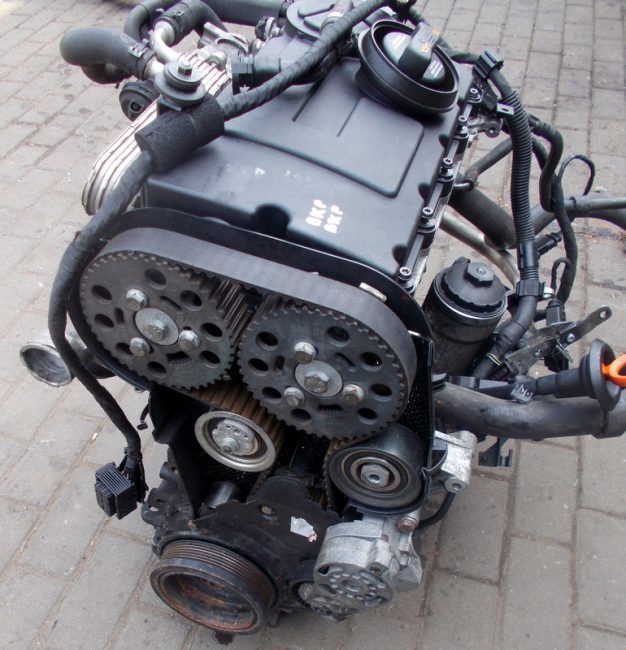
On the all-wheel drive Volkswagen Passat, the AXZ engine gained popularity. This is one of the most powerful internal combustion engines that was used on this car. The engine has a volume of 3.2 liters. The internal combustion engine has a capacity of 250 hp.
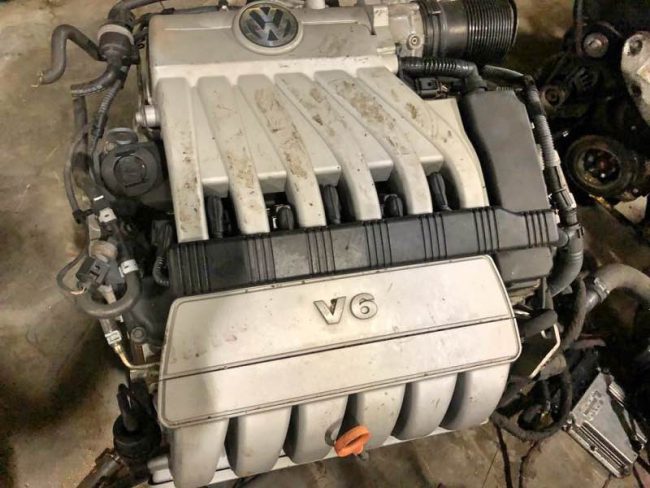
One of the most modern engines is the DADA power unit. The engine has been produced since 2017 and the most advanced technologies have been used in it. The motor can boast of excellent environmental friendliness. The aluminum cylinder block affects the ICE resource. Therefore, not every DADA power unit is able to overcome 300+ thousand km.
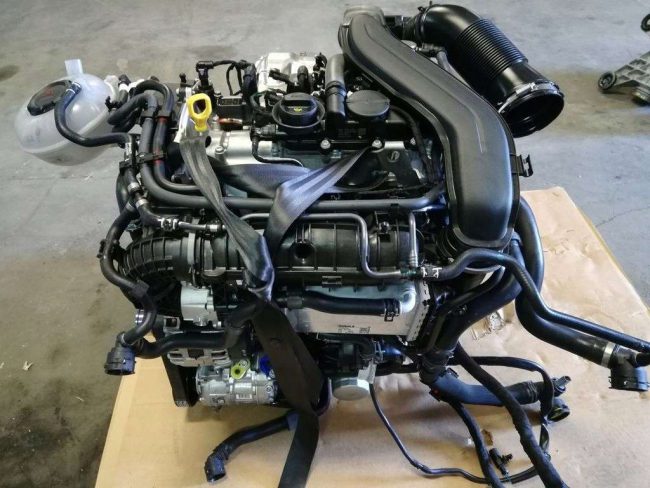
Which engine is better to choose Volkswagen Passat
When choosing a used Volkswagen Passat from the early years of production, it is recommended to pay attention to a car with a VAG 2E engine. The engine is one of the most reliable in its class. Breakdowns, despite the solid age of the internal combustion engine, are not so common. Maslozher and the occurrence of piston rings are easily eliminated by a bulkhead, which is facilitated by the simple design of the motor.
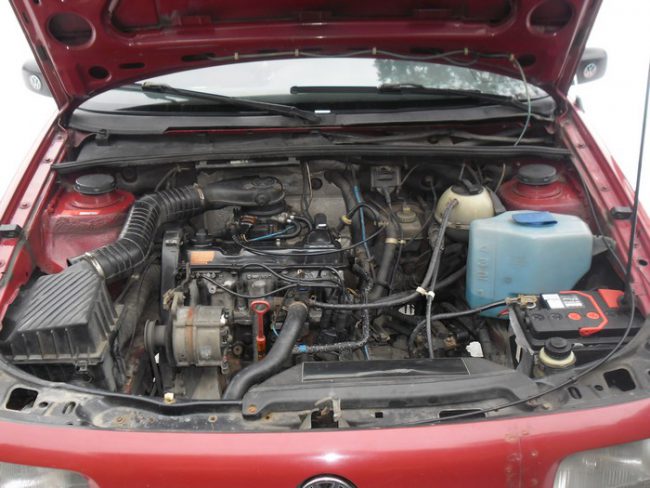
A used Volkswagen Passat with a CAXA engine would also be a good choice. The popularity of the engine eliminates the hassle of finding spare parts. The internal combustion engine has a simple design, so minor repairs are easy to do with your own hands. The motor is sensitive to maintenance intervals.
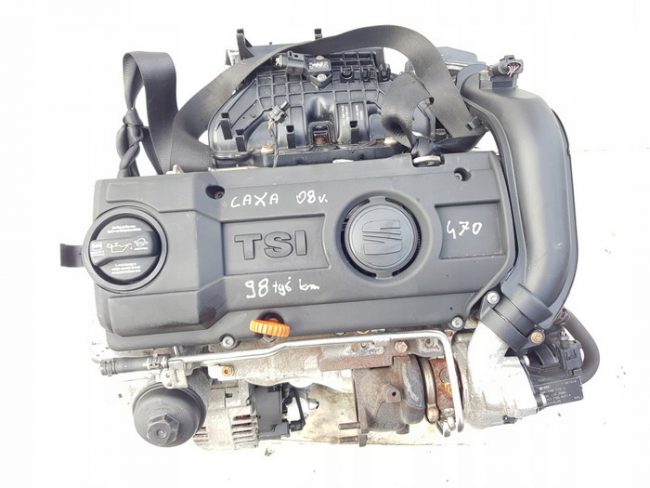
When choosing a Volkswagen Passat with a BKP engine, special vigilance must be exercised. Piezoelectric pump injectors are sensitive to fuel quality. Therefore, when operating a car far from good gas stations, it is recommended to abandon the option of a car with BKP. Nevertheless, with proper maintenance and normal fuel, the internal combustion engine shows itself to be very reliable and durable.
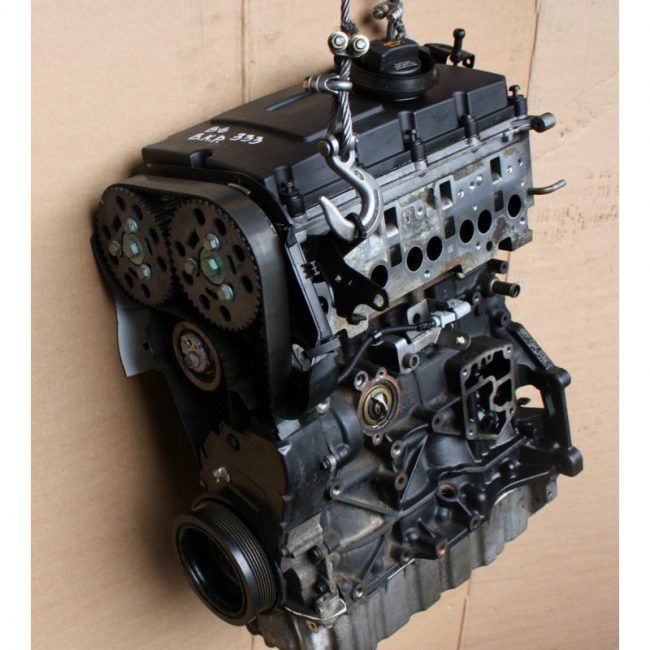
If you want to have a powerful car with all-wheel drive, it is recommended to take a closer look at the AXZ. The high engine power contributes to sporty driving. ICE does not present unexpected breakdowns. It is also important to consider that the supported AXZ has a significant increase in fuel consumption.
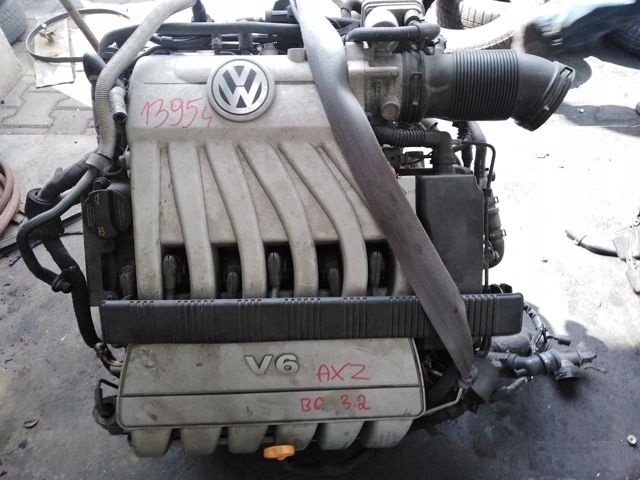
When choosing a Volkswagen Passat of later years of production, it is recommended to pay attention to a car with a DADA engine. The motor will completely suit people who care about the state of the environment. At the same time, the internal combustion engine produces amazing dynamics. The power plant is sensitive to the quality of the gasoline being poured.
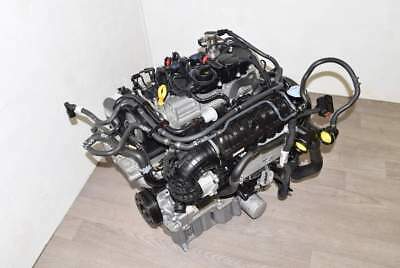
Choice of oil
When choosing oil, it is recommended to focus on the generation of the car. Early Volkswagen Passats have worn-out internal combustion engines, so it is better to choose a thicker lubricant. For later generations, 5W30 and 5W40 oils are optimal. Such a lubricant penetrates to all rubbing surfaces and forms a reliable film.
For filling in the Volkswagen Passat engine, official dealers recommend using only branded oil. It is strictly forbidden to add any additives. If you use them, the car owner loses the warranty on his car. The use of oils from third-party manufacturers is allowed; in this case, the lubricant must be synthetic and must correspond in viscosity.
When choosing oil, it is important to consider the region of operation of the Volkswagen Passat. In cold climates, a less viscous lubricant is recommended. It will make it easier to start the engine in cold weather. In hot climates, it is recommended to fill in the oil thicker. In this case, a more reliable film will be created in friction pairs, and the risk of oil seals and gaskets leaking is minimized.
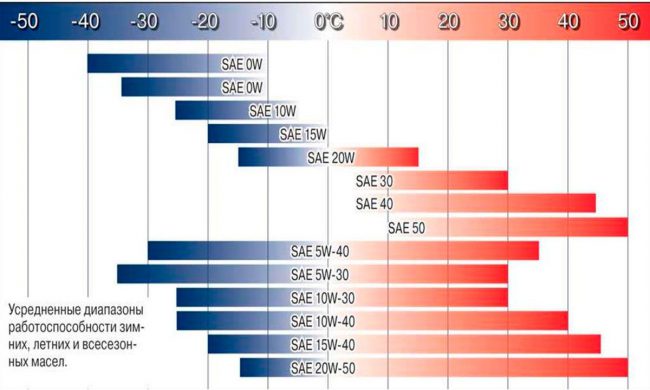
Reliability of engines and their weaknesses
Most Volkswagen Passat engines have a timing chain drive. With runs of 100-200 thousand km, the chain is stretched. There is a risk of its jumping, which is often fraught with a blow of the pistons on the valve. Therefore, it is important to monitor the timing drive and replace the chain in a timely manner.
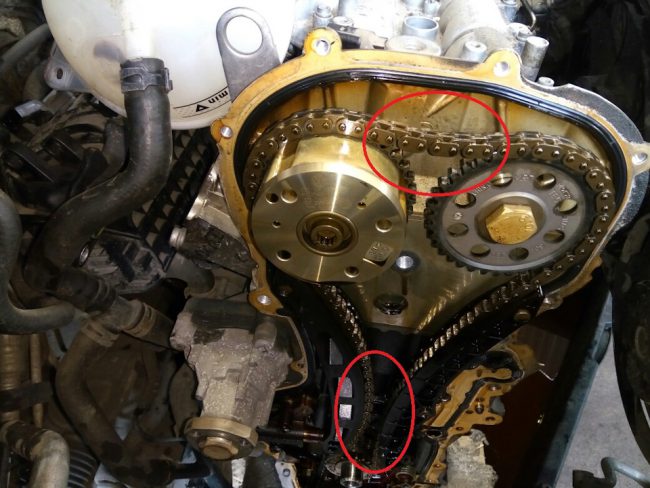
Another weak point of Volkswagen Passat power plants is fuel sensitivity. In Europe, the fuel has a higher quality than in the conditions of domestic operation. Therefore, carbon deposits form in Volkswagen engines. It causes an increase in fuel consumption and can lead to more serious consequences.
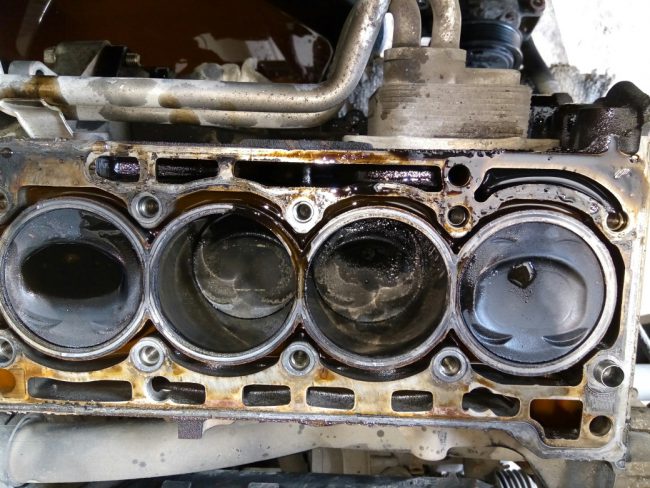
A common problem that Volkswagen Passat engines face is compression loss. The reason for this lies in the coking of the piston rings. You can get rid of their occurrence by sorting and replacing defective parts. Troubleshooting on early generation internal combustion engines is much easier due to the simplicity of the design.
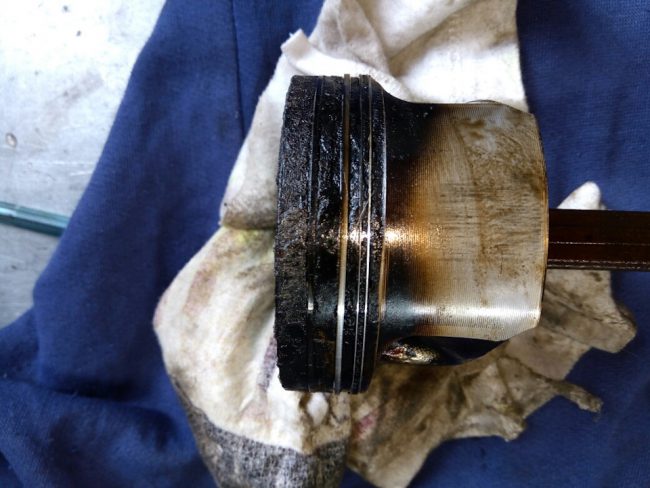
Seizures and extreme wear of cylinders are often found on supported internal combustion engines. In the case of a cast-iron block, the problem can be eliminated by boring and using a ready-made repair kit. For aluminum cylinder blocks, repair is not recommended in this case. They do not have a sufficient margin of safety and are not subject to re-sleeving.
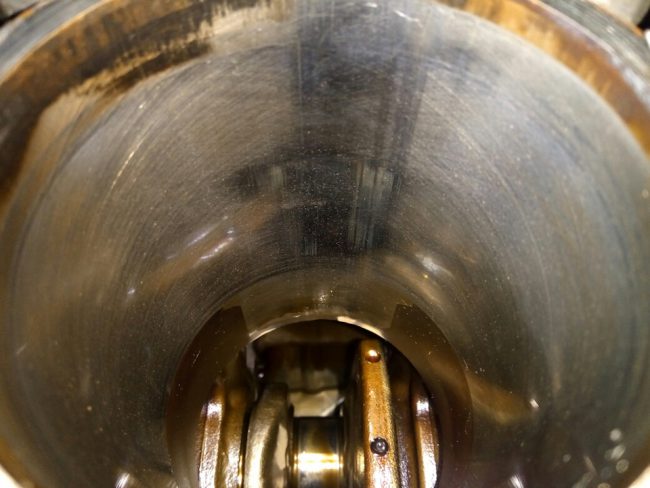
Modern Volkswagen Passat engines have sophisticated electronics. She often breaks down. It is often possible to find a problem by self-diagnosis. Especially often one or another sensor turns out to be faulty.
Maintainability of power units
The engines of the first and second generations of the Volkswagen Passat have excellent maintainability. It falls gradually with the release of each new generation of cars. The reason for this lies in the complexity of the design, the use of less durable materials and the increased requirements for the accuracy of certain dimensions of parts. The advent of electronics has particularly affected the deterioration of maintainability.
For minor repairs of Volkswagen Passat engines, there are ready-made repair kits. They are produced mainly by third-party manufacturers, but branded spare parts can often be found. So, for example, sorting out the timing drive will not be difficult even on motors where the chain is designed for the entire life of the engine. Timely intervention in the timing drive often eliminates serious problems, so it is important to monitor how the internal combustion engine works.
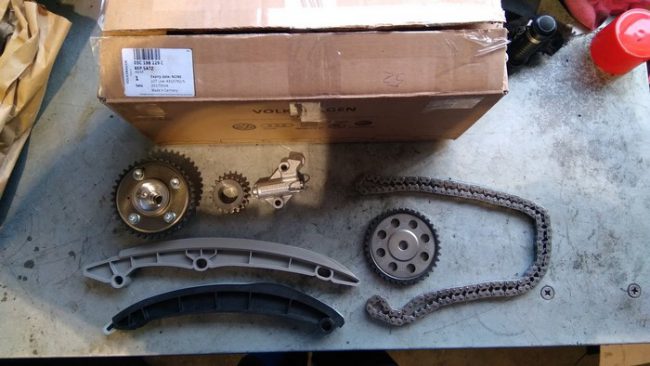
For minor repairs, for example, a bulkhead of a cylinder head, almost all service station masters undertake without problems. In early generations, it is not difficult to carry out such repairs on your own. Maintenance of Volkswagen Passat engines is rarely accompanied by difficulties. This is facilitated by the convenient design of the internal combustion engine.
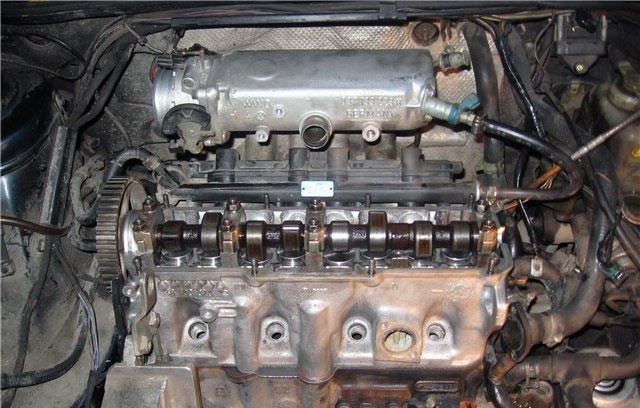
Overhaul is not a problem to carry out for engines with a cast-iron cylinder block. These are mainly engines of the 1-6th generation of the Volkswagen Passat. On modern machines, internal combustion engines are installed, which are considered officially disposable. Their capital is almost impossible, therefore, in case of serious malfunctions, it is recommended to replace it with a contract engine.
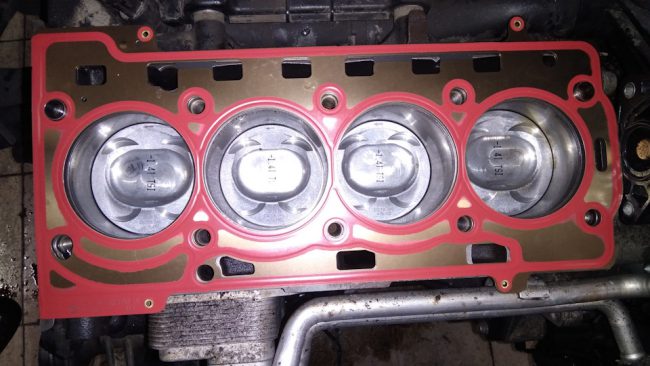
Serious problems with electronics in Volkswagen Passat engines are rare. Self-diagnosis usually helps to carry out repairs by identifying a faulty sensor. At the same time, electronics breakdowns are eliminated by replacing the failed element, and not by repairing it. Finding the right parts for sale is usually not difficult, since Volkswagen Passat engines are very common.
Tuning engines Volkswagen Passat
Most Volkswagen Passat powertrains are predisposed to forcing. This is especially true for engines with a cast-iron cylinder block. But even ICEs cast from aluminum have a sufficient margin of safety to add several tens of horsepower without a noticeable loss of resource. At the same time, there are no restrictions in choosing the method of tuning the power unit.
One of the most popular ways to increase engine power is to chip tune it. Forcing by flashing is relevant for later generations of the Volkswagen Passat. Their engines are throttled by environmental regulations. Chip tuning allows you to unlock the full potential that lies in the motor.
Chip tuning can also serve another purpose, in addition to increasing engine power. Flashing the ECU allows you to change other parameters of the power plant. Therefore, with the help of chip tuning, it is possible to improve the economy of a car without a significant deterioration in dynamics. Flashing optimizes the operation of the internal combustion engine and adjusts it to the driving style of the car owner.
For a slight increase in power, surface tuning is used. In this case, lightweight pulleys, a zero resistance filter and a direct-flow exhaust system are used. Light tuning adds 5-20 hp. It affects related systems, not the motor itself.
For a more noticeable increase in power, deep tuning is recommended. In this case, the internal combustion engine is rebuilt with the replacement of some elements with more durable spare parts. Such tuning is always accompanied by the risk of irreparably damaging the power unit. For forcing, it is preferable to choose an internal combustion engine with a cast-iron cylinder block. Increasing power requires the use of forged pistons, crankshafts and other elements.
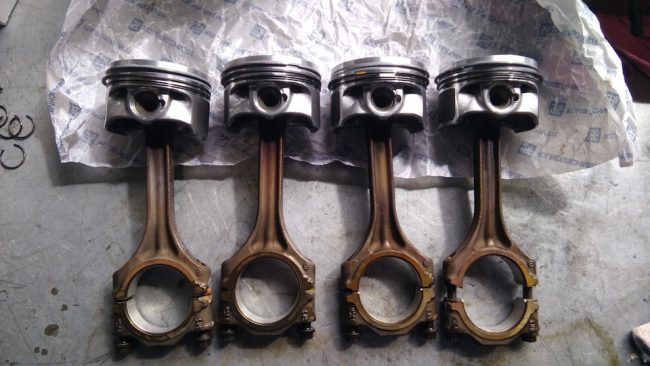
Swap engines
Engine swaps from early generations of the Volkswagen Passat are becoming rarer every year. Motors do not have sufficient dynamic performance and efficiency. Their swap usually occurs on cars of similar years of manufacture. Motors are good for swap because they have a simple design.
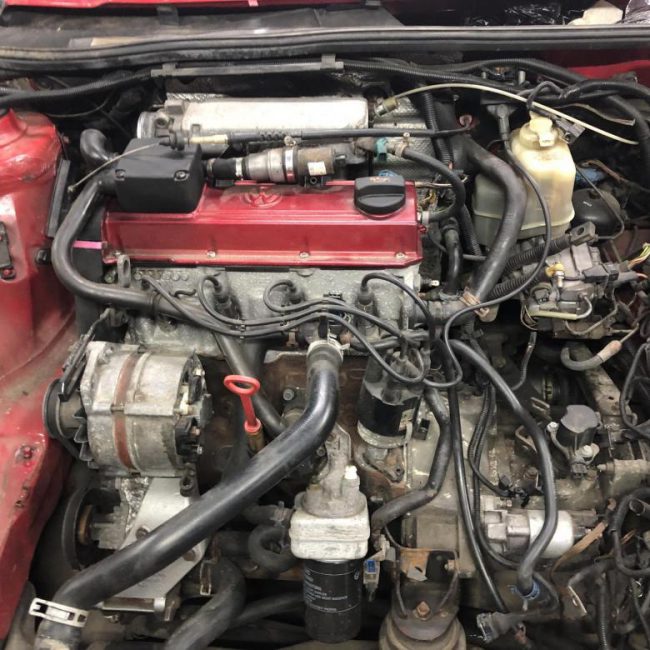
Late generation Volkswagen Passat engines are very popular for swaps. They are reliable and durable. The complexity is usually caused by electronics. After the swap, part of the instrument panel may stop working.
The engine compartment of the Volkswagen Passat is very large, which contributes to the swap of other engines. The difficulty is usually associated with the atypical location of the internal combustion engine on some generations of the Volkswagen Passat. Despite this, car owners often use 1JZ and 2JZ engines for swap. These motors lend themselves perfectly to tuning, which makes the Volkswagen Passat even more dynamic.
Purchase of a contract engine
There are a large number of Volkswagen Passat contract engines of all generations on sale. Motors from cars from early years of production have excellent maintainability, so even a “killed” copy can be restored. Still, you should not take an internal combustion engine with a cracked cylinder block or a cylinder block that has changed its geometry. The estimated price for early generation motors is 60-140 thousand rubles.
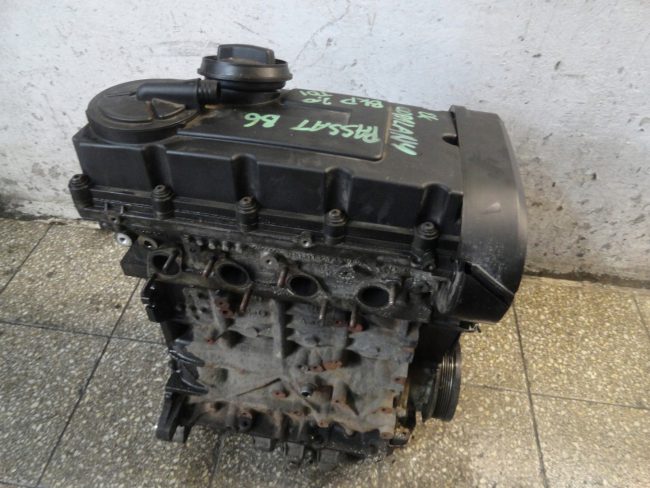
The power units of the latest generations of the Volkswagen Passat are officially considered disposable. Therefore, when buying such a contract motor, special attention should be paid to preliminary diagnostics. It is important to check both the electronics and the mechanical part. The estimated cost of a Volkswagen Passat internal combustion engine reaches 200 thousand rubles.

